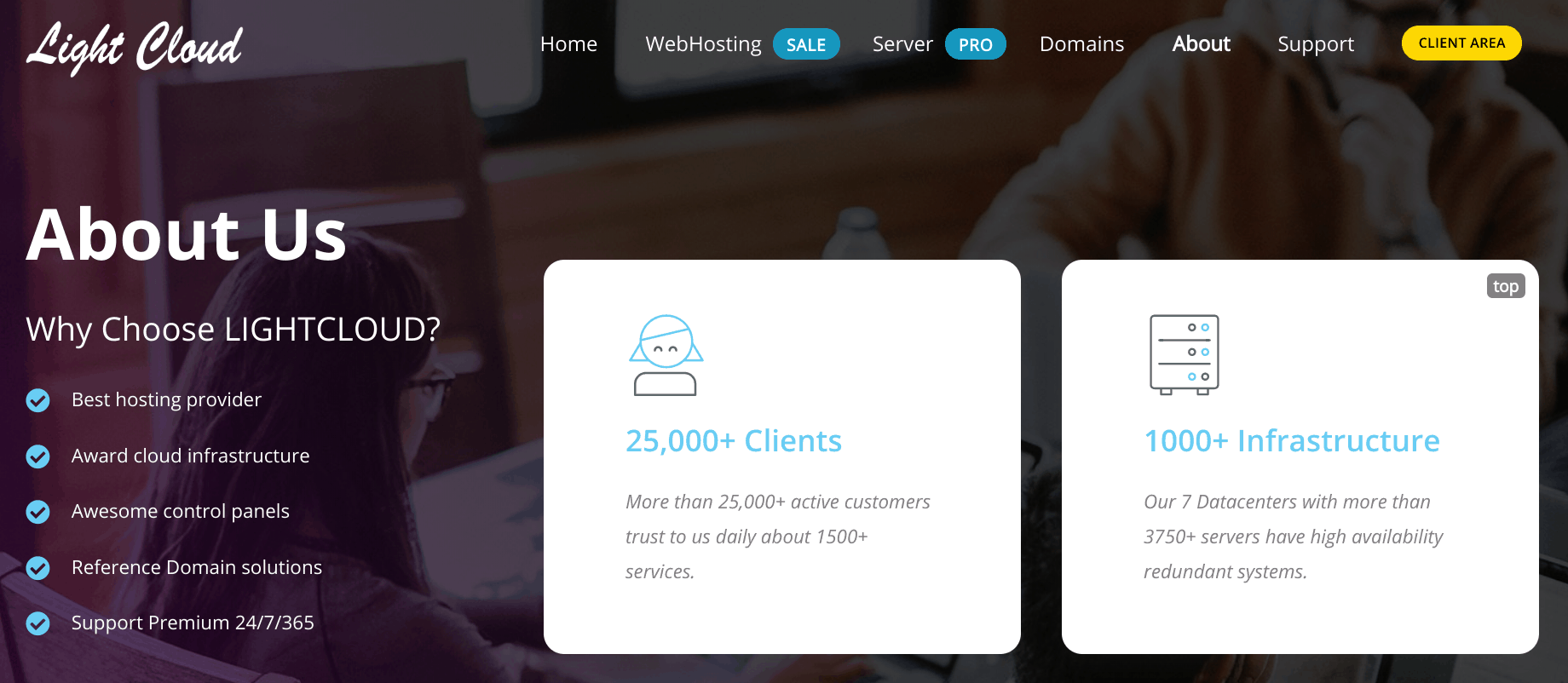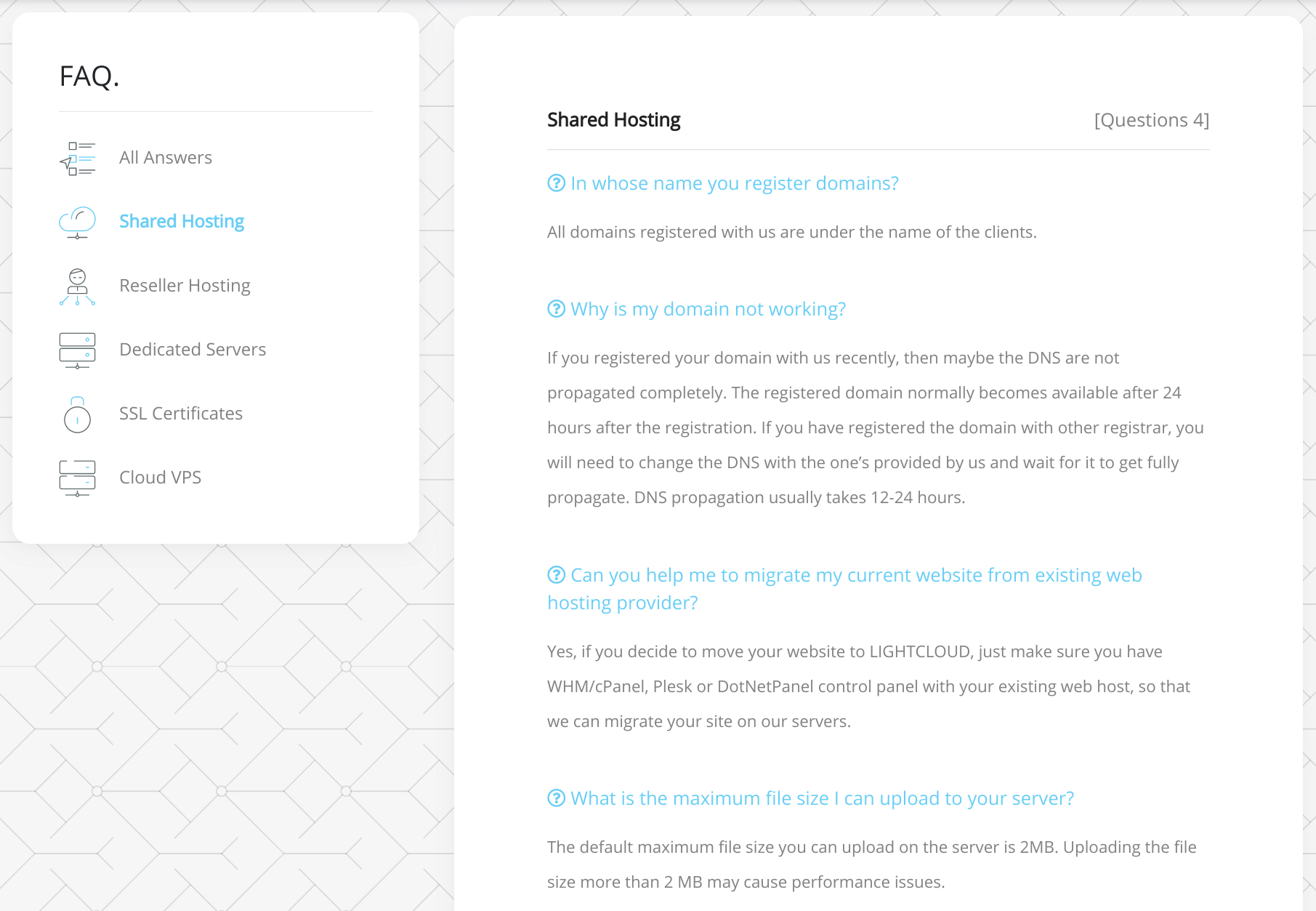
LIGHT CLOUD TECHNOLOGY is a Malaysian web hosting company that specializes in Linux and Windows shared hosting, reseller hosting, DNS hosting, VPS hosting, dedicated servers, and domain registration. It isn’t clear when the company was founded, but I can tell you that it hosts 25,000 customers on servers in seven worldwide locations: the U.S.A., U.K., Singapore, Malaysia, Hong Kong, Japan, and South Korea.
The vendor’s English-language website (with prices displayed in Malaysian ringgit) is nicely designed but could be made more informative.
Features and Ease of Use
LIGHT CLOUD TECHNOLOGY offers Linux and Windows shared hosting accounts which are offered on two price plans per operating system. The Business plan and Pro plan differ in terms of disk space and the number of hosted websites, but they have these features in common:
- Unlimited bandwidth
- SSD storage
- Free SSL certificates
- 99.9% uptime guarantee
- Remote daily backups
- cPanel (for Linux) and Plesk (for Windows) control panels
- One-click application installer
- Website builder
The Windows and Linux plans are administered via the Plesk and cPanel control panels (respectively), via which you can manage your website files, email accounts, FTP accounts, domains, and more. Plesk has a built-in application installer whereas cPanel includes Softaculous, and in both cases, you can easily install CMS and other software such as WordPress, Joomla, Drupal, Magento, PrestaShop, phpBB, and TYPO3.
The free website builder offers plenty of ready-made layout templates that you can customize using a drag-and-drop user interface. It allows you to create your web presence without the need for website design or coding expertise.
Pricing and Support
As I would expect, LIGHT CLOUD’s affordable Windows hosting accounts are slightly more expensive than the Linux ones. You can pay by PayPal, credit/debit card, or wire transfer on a monthly or annual basis, and you get a seven-day money-back guarantee that gives you a short time to change your mind.
You can contact LIGHT CLOUD by telephone, support ticket, or email, but my exploratory email went unanswered. For self-support, there is a surprisingly comprehensive and nicely presented set of frequently asked questions:

 Website Planet
Website Planet











